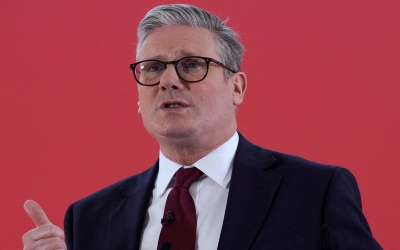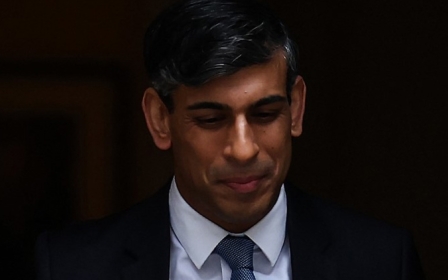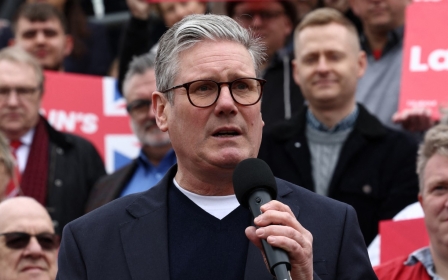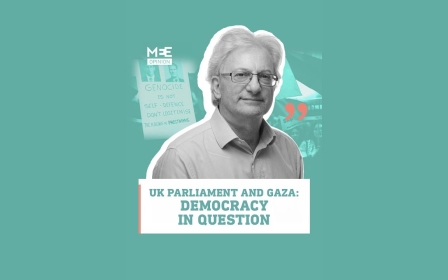UK Prime Minister Rishi Sunak calls for general election on 4 July
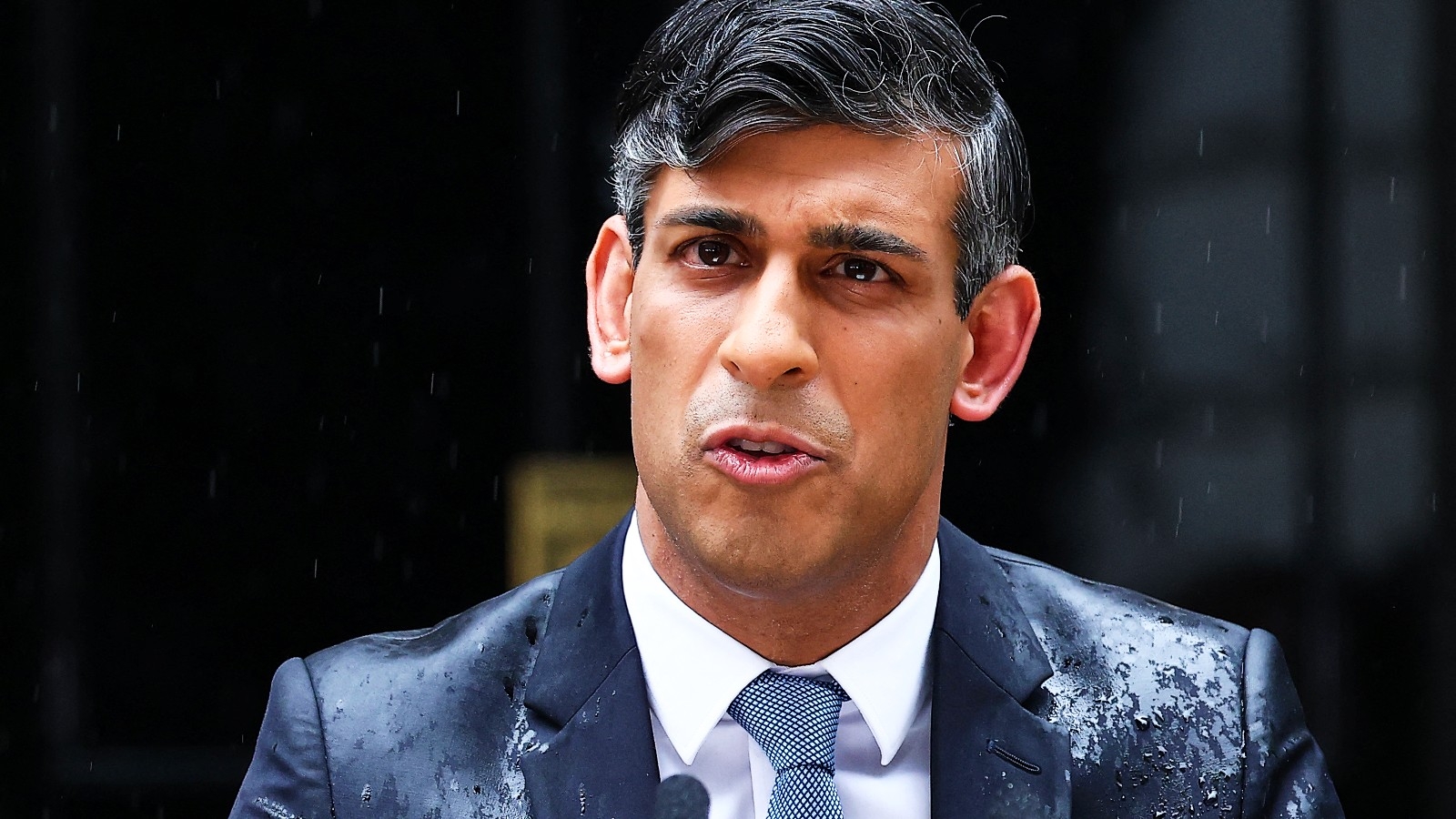
British Prime Minister Rishi Sunak on Wednesday announced a general election on 4 July, setting the UK on course for a vote in which Keir Starmer’s Labour Party is the frontrunner to form the next government.
The campaign is likely to see candidates from all parties facing scrutiny over their views on Israel’s war in Gaza, amid criticism of continuing UK arms exports to Israel and frustration at the time it took the Labour Party to support calls for a ceasefire.
"Now is the moment for Britain to choose its future," Sunak said in a speech delivered in driving rain outside 10 Downing Street, describing that choice as one between him and Starmer.
"Over the next few weeks, I will fight for every vote. I will earn your trust and I will prove to you that only a Conservative government led by me will not put our hard-earned economic stability at risk."
Speaking shortly afterwards, Starmer said: “On 4 July you have the choice and together we can stop the chaos, we can turn the page, we can start to rebuild Britain and change our country.”
New MEE newsletter: Jerusalem Dispatch
Sign up to get the latest insights and analysis on Israel-Palestine, alongside Turkey Unpacked and other MEE newsletters
Sunak’s Conservatives, who have been in power under a succession of prime ministers since 2010, trail Labour by 20 points in the most recent polls, and appear to be facing the prospect of a heavy defeat.
Sunak became prime minister in October 2022, succeeding the short-lived premiership of Liz Truss, who had succeeded Boris Johnson just a few weeks earlier.
Johnson defeated Jeremy Corbyn-led Labour in December 2019 in a general election dominated by the terms of the UK’s exit from the European Union, winning an 80-seat majority for the Conservatives.
But Johnson was forced to step down amid controversy over his government’s handling of the Covid-19 pandemic and allegations that he had broken his own social distancing rules, resulting in police investigations.
Starmer succeeded Corbyn as Labour leader following the 2019 election and has moved the party back onto the centre-right of British politics occupied by Tony Blair, when he won election victories in 1997, 2001 and 2005.
While Sunak's Conservatives trail Labour by 20 points in the polls, some party officials are concerned their advantage is not as solid as it appears, with many Labour constituencies upset over the party's support for Israel's war in Gaza.
A new study from Ipsos Mori revealed that the ratings of Conservative and Labour leaders have plummeted among ethnic minority voters between October and December 2023.
The analysis shows that the dip in Starmer's ratings is particularly acute, suggesting that the "Gaza effect" could be responsible for the drop in support.
The study, which examines voting intention and leadership satisfaction ratings among ethnic minorities and white Britons from 1996 to 2023, found that in the second half of 2023, 67 percent of ethnic minorities were dissatisfied with Sunak.
Sunak’s net satisfaction score among ethnic minorities has dropped to -48, down from -24 for the first period of his premiership between October 2022 and June 2023.
Labour leader Starmer’s net satisfaction score for the same demographic plummeted from -4 to -21, representing the lowest net satisfaction score a Labour leader has recorded among ethnic minorities by Ipsos studies since 1996.
A separate analysis published earlier this month revealed that Labour lost a third of its vote share in areas with a Muslim majority during recent local elections, likely driven by its stance on Israel's war on Gaza. Another survey by YouGov found that more than two-thirds of British people want a ceasefire in Gaza.
The party is set to face challenges over its Gaza policy from independent candidates, or candidates representing Rochdale MP George Galloway's Workers Party, in a number of constituencies.
Jeremy Corbyn, meanwhile, who was suspended from the Labout Party after saying that antisemitism allegations raised against the party under his leadership had been "dramatically overstated", is set to stand as an independent candidate in the Islington North seat that he has represented since 1983.
In a statement on Wednesday, Zara Mohamed, the secretary general of the Muslim Council of Britain, called on parties to "resist the urge to scapegoat Muslims and minorities".
Mohamed said: "The recent local elections saw a significant turnout from Muslim voters. This engagement sends a clear message to our politicians: every vote matters, and the voices of all communities must be heard and respected.
"British Muslim communities are diverse, yet there are common issues that affect us all. There is no doubt that the ongoing atrocities in Gaza is foremost on our mind. And Muslim communities are united with the majority of Britons in ending the killings, wanting their government to uphold international law and affirm Palestinian statehood."
Middle East Eye delivers independent and unrivalled coverage and analysis of the Middle East, North Africa and beyond. To learn more about republishing this content and the associated fees, please fill out this form. More about MEE can be found here.


